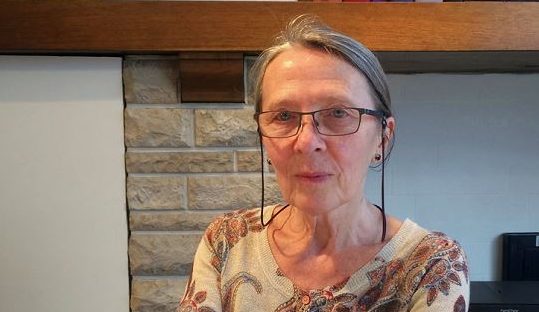Three doctors who ended the life of a woman with autism will face a trial on charges they poisoned her, Belgium officials said.
It will be the first criminal investigation in a euthanasia case in the country since the practice was legalized in 2002.
The doctors took the life of Tina Nys, 38, in 2010. She was diagnosed with Asperger’s syndrome, a mild form of autism, two months before she was euthanized.
Belgium allows the euthanasia of people for psychiatric reasons if they can prove they have “unbearable and untreatable” suffering. Among Belgians euthanized for mental health reasons, the most common conditions are depression, personality disorder, and Asperger’s. Experts both inside and outside the country have questioned whether autism should be a valid reason for getting euthanized.
Amid growing concerns over Belgium’s expanding euthanasia law, which now allows children to request and receive euthanasia, the doctors who euthanized Nys will face criminal charges that could land them life sentences in prison if convicted.

The doctors who granted the euthanasia of Nys will now face trial “due to poisoning,” said Ghent Prosecutor Francis Clarysse this week. It is unclear when a trial might begin and the doctors could still appeal the decision.
Belgium’s euthanasia commission had previously approved the case after Nys’s death and did not publicly cite any problems with it.
Sophie Nys, one of Tina’s sisters, said there were numerous irregularities in her death, alleging that the doctor who performed the euthanasia asked her father to hold the needle in place while the doctor administered the fatal injection, among other fumbling efforts. Afterward, the doctor asked the family to use a stethoscope to confirm that Tina’s heart had stopped.
The sisters told Belgian broadcaster Terzake that Tina Nys had told them four hours before the euthanization that she couldn’t go through with dying, according to a translation by Life Site News. But when they met her at the office where the procedure was scheduled, her fears had vanished. “I can surmise that she took some sort of medicine, something that no-one can have controlled at that moment,” said one of her sisters.
They said the doctor was “nonchalant, to put it lightly,” giving the family members there the example of putting down a pet that is suffering. “You would put it down, too,” he said, according to one of the sisters.

Concerns Over Thienpont
Concerns have previously been raised in other cases about whether Dr. Lieve Thienpont, Nys’s psychiatrist, too easily approved euthanasia requests from patients with mental illnesses. Some experts estimated that Thienpont has been involved in about a third of all euthanasia cases for psychiatric reasons in Belgium.
Documents revealing a rift between Thienpont and Dr. Wim Distelmans, who heads Belgium’s euthanasia review commission, were published previously. In them, Distelmans voiced fears that Thienpont and his colleagues may have failed to meet certain legal requirements in some euthanasia cases, and wrote that he would no longer accept referred patients from Thienpont.
“I think this (trial) has symbolic importance in the sense that it sends doctors a message…that you could be accused of a very serious crime and prosecuted if you don’t comply with the legal requirements for euthanasia,” said Penney Lewis, a law professor at King’s College London. “The prospect of criminal investigation may act as a mechanism to make doctors more careful.”
Previously, experts said they were stunned by how involved Thienpont was involved with the killings.
“That one single psychiatrist in Belgium has had such a major impact on the practice of euthanasia in psychiatric patients is very alarming,” said Dr. Stephan Claes, a psychiatrist at the University of Leuven. Thienpont has disputed any wrongdoing.
Earlier this month, Dutch officials announced they would also prosecute a doctor who euthanized a woman with dementia, also marking the first time the Netherlands has charged a physician for possible wrongdoing in performing euthanasia.
History of Euthanasia in Belgium
Euthanasia was performed on 14,753 people in the 15 years from it’s legalization in 2002 through 2016, according to official data from the Belgium government cited by bioethics group Alliance Vita.
The number of euthanasia cases has been increasing; there were 2,024 in 2016, versus 952 in 2010 and 235 in 2003. A number of other cases are conducted clandestinely.
Cases over the years have included a 44-year-old woman suffering from anorexia, two 45-year-old twin brothers who were born deaf, and a 59-year-old man suffering from pancreatic cancer.
Most of the people choosing to have their life ended were younger than 80 and had cancer, according to a report in the Canadian Medical Association Medical Journal published in 2016, reported Reuters. But the number of cases among people older than 80, people without cancer, and those not expected to die represented the largest increases.
Marcel Zwahlen, a researcher at the Institute of Social and Preventive Medicine at the University of Bern in Switzerland, said that some groups in Belgium don’t approve of euthanasia.
“Most of the concerns surround the ‘free will’ of the patient and whether the decision to get help in committing suicide is really free, especially for cases with neuropsychiatric conditions,” Zwahlen said by email to Reuters.
People also fear that some patients may be coerced into the decision, spurred in part by economic hardship.
The Associated Press contributed to this report


